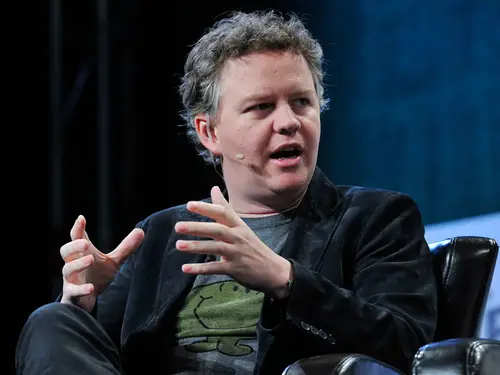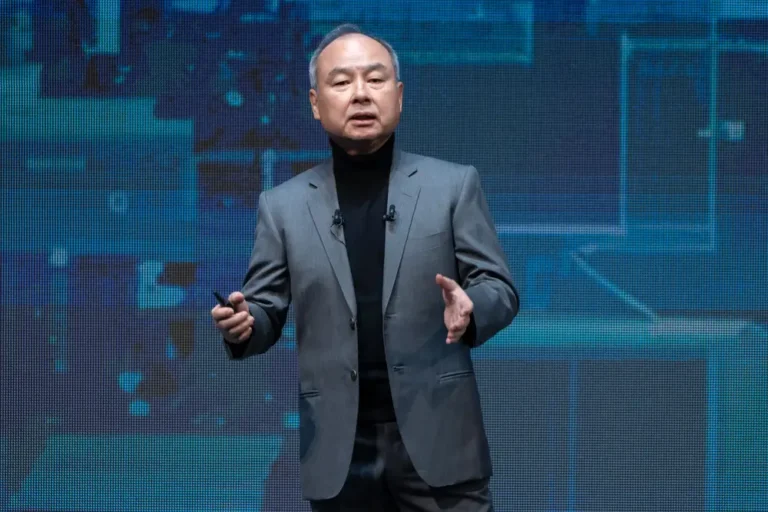The giant sucking sound you hear is the gobs of capital being pulled away from emerging managers. Here’s how one solo capitalist defied the slump.

- Jordan Wan is an emerging fund manager based out of Denver.
- In 2019, he started a venture fund that plays to his strengths in sales and go-to-market.
- CoFound Partners has closed on $15 million for its sophomore fund, Wan tells Insider exclusively.
Emerging fund managers have had a difficult time.
Those who raised their first venture capital funds during the pandemic boom are now having difficulty with their sophomore efforts. Family offices and institutions that front money for venture funds have been shifting their investments away from emerging managers and toward established firms. According to PitchBook data, emerging managers are on track to have their worst fundraising performance since 2016, with only $2.3 billion in commitments secured from January to June 2023.
A limited partner in London who requested anonymity recently told Insider’s Callum Burroughs, “If your bet on a new manager loses money, then you look foolish, but no one can blame you for backing Sequoia.”
Despite the headwinds, some emerging managers are defying the downturn by raising new capital.
Jordan Wan, a long-time operator and recruiter, has reaped significant rewards by emphasizing his expertise. In 2019, he founded CoFound Partners to invest in early-stage software startups and assist them with sales and go-to-market — a buzzword in tech circles that describes how a company sells a new product and drives demand. He told Insider exclusively that he has now raised $15 million for fund two from investors such as Cendana Capital, Invesco Private Capital, and a group of two dozen startup founders.
Wan, who lives in Denver, Colorado, seeks out founders building software in industries such as healthcare, supply chain, climate, and back office — “Goldilocks markets that are in the early innings of digitization,” he says.
He invests quickly, participating in five to seven deals per year and collaborating with larger funds rather than leading rounds. The megafunds will occasionally send him deals in order to fill out a round and bring his go-to-market expertise to the cap table.
Having a niche pays off
Wan had a reputation for overvaluing startups even before he became an investor. His first job in technology was at the telehealth startup Zocdoc, where he spent the majority of his time in the field selling to physicians during the company’s blitzscaling phase. Zocdoc has raised slightly more than $375 million, and founder and CEO Oliver Kharraz stated in a recent interview that the company is focused on growth rather than exit.
Wan went on to build a career working closely with founders to teach them how to sell and hone a go-to-market strategy, which he defines as “all the different functions one puts together to acquire customers.”
CloserIQ, an executive search and recruiting firm focused on go-to-market talent, was founded in 2014 to assist founders by stacking their teams with the right sales and marketing expertise. That firm has placed employees at over 900 technology companies, including Justworks and Oscar Insurance.
He stated that he realized his expertise was lacking in many early-stage funds. Many investors join venture as former founders or product gurus, but it’s a rare investor who understands marketing, sales, and operations, all of which Wan had previously done. As a result, in 2019, he reached out to his founder network and raised a $2 million fund to invest in software companies.
“I raised mostly from founders I had worked with,” Wan explained, explaining that those founders saw firsthand how he could help companies grow into long-term enterprises.
They also gave him access to promising startups.
In 2020, Jake Cooper had just closed a round of funding from friends and family for his startup, Grow Therapy, which creates tools for therapists to run their own practices, when a mutual friend suggested he meet Wan. Cooper had little sales experience coming out of Blackstone as a private equity investor, and his friend thought he could benefit from Wan’s “raw intellectual horsepower.”
“I know you don’t want money, but I recommend paying him to be a part of this,” Cooper remembered his friend saying.
The founder made room in the round for Wan to write one last check, and they’ve been in touch ever since. According to Cooper, Wan works harder than other investors. He taught him how to recruit and close the first few hundred providers on the service, and he later designed the company’s recruiter compensation structure. Wan assisted Cooper in deciding between investors to lead the next round of capital at 2 a.m. in London, while Wan was on his honeymoon.
Wan’s small pilot fund made early investments in about 20 companies, including ChartHop, which has raised over $74 million in capital for its analytics software for people leaders, and Garner Health, a competitor to Zocdoc that has raised two rounds of funding in 2021 alone.
‘I started investing after my first close to build momentum’
Wan gained enough traction to raise his first institutional fund. Even so, it wasn’t a sure thing.
He began raising funds in the frothy market of 2021, where capital was plentiful for both startups and venture capitalists. Wan closed the first tranche of capital relatively quickly.
Then, last year, something changed. Some of his prospective investors declined or reduced the size of their commitments, while others were inundated with pitches from lone-wolf investors, also known as “solo capitalists.”
Wan discovered that, without a long track record, he needed to use his first few investments from fund two to build momentum and close multiple deals. QA Wolf, a company whose product detects software bugs, was one of those early bets. QA Wolf has emerged from stealth with $20 million in funding and dozens of customers since his investment in August of 2021. Wan claims that QA Wolf’s breakout success assisted him in securing some of the fund’s largest checks, including those from fund of funds such as Cendana and Invesco.
Wan finished the fund 18 months later, at the beginning of this year. Now, he’s preparing for fund three, which Wan plans to launch in 2024.






